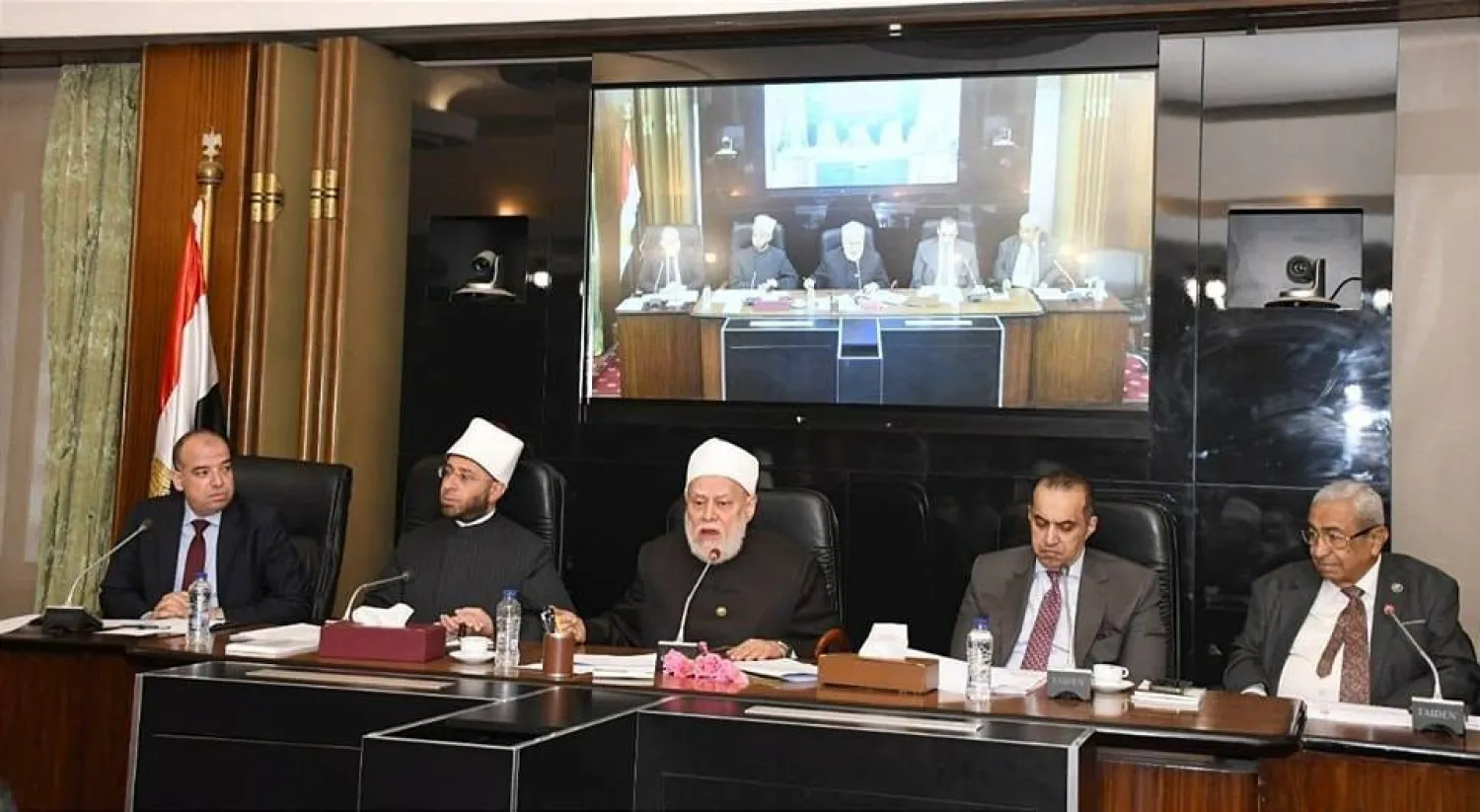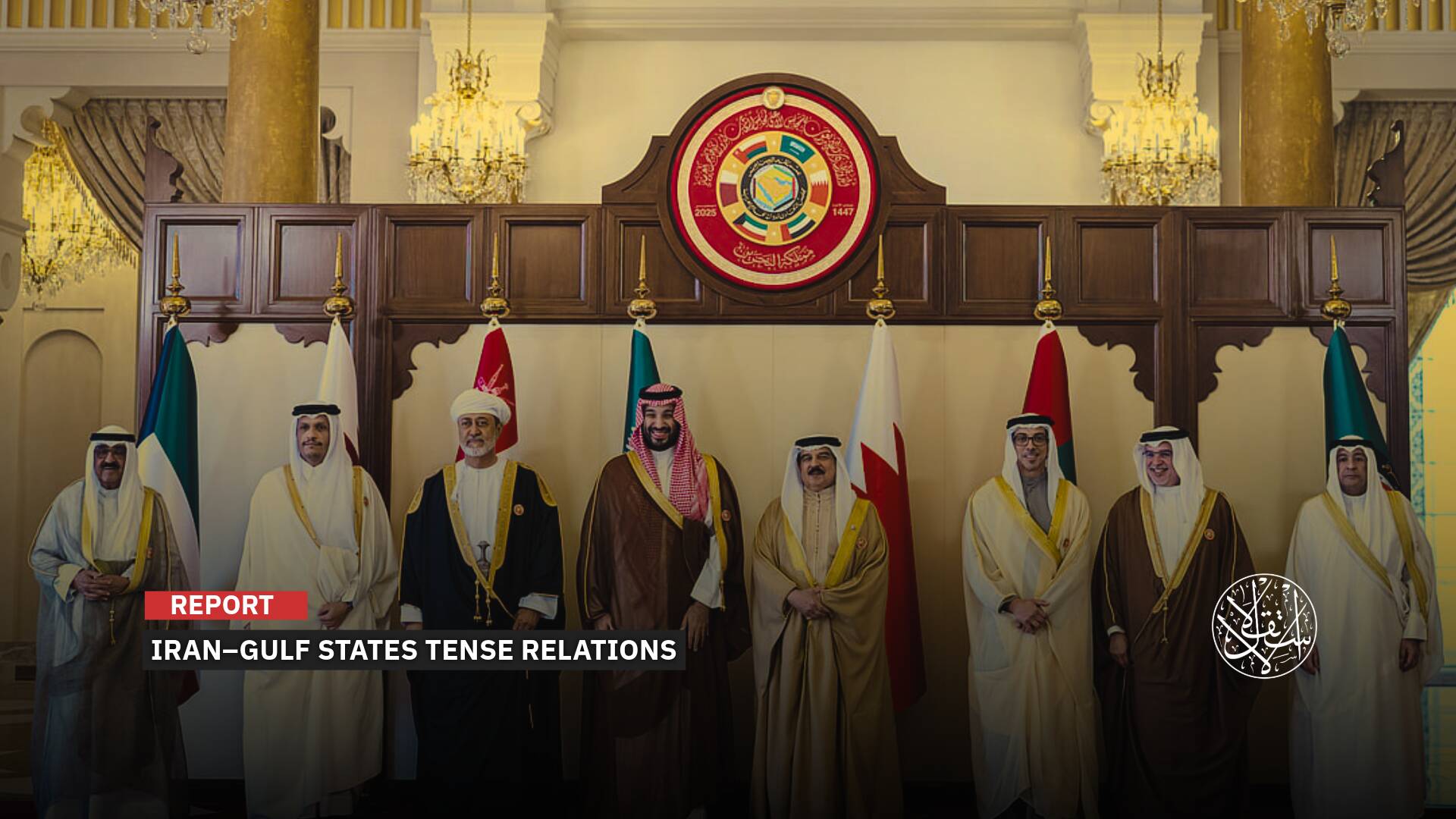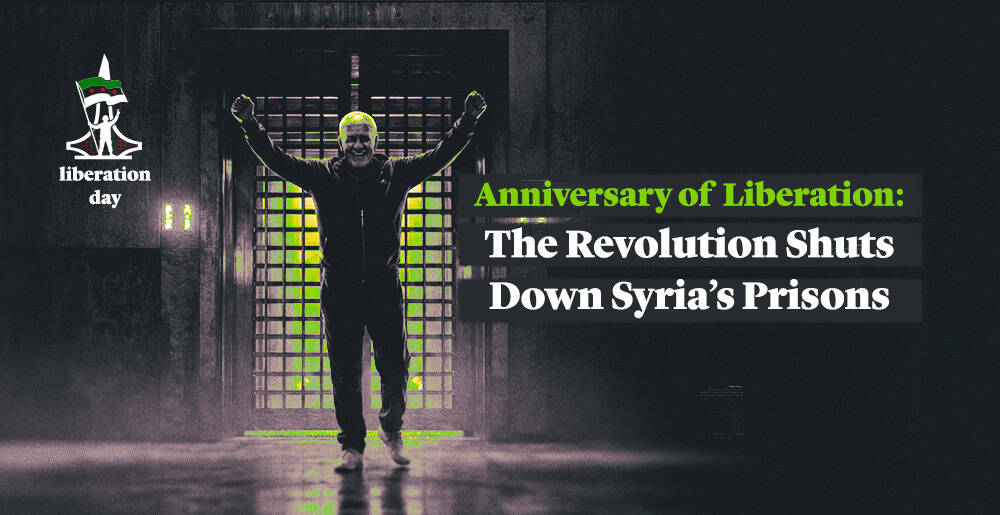El-Sisi Redraws Egypt's Religious Institutions: Is It to Regulate Fatwas or Undermine al-Azhar?

The draft law aims to put an end to the confusion surrounding the issuance of fatwas.
As part of a long-running campaign to undermine the authority of Egypt’s highest Islamic institution, a new fatwa law has been passed that effectively strips al-Azhar of much of its traditional influence, relegating it to a symbolic role devoid of real power.
The move comes after years of failed attempts by Egyptian head of the regime Abdel Fattah el-Sisi to bring al-Azhar—led by Grand Imam Ahmed al-Tayeb—under tighter state control.
Since the 2011 revolution, al-Azhar has reasserted its religious authority in public life, a resurgence that has long irked the regime.
Now, with the passage of the new legislation, Cairo appears to be accelerating efforts to sideline the institution, transferring key prerogatives of religious interpretation to a state-aligned body and redrawing the balance of power in Egypt’s religious landscape.
The strategy to create parallel Islamic institutions—such as the Dar al-Ifta and the Ministry of Religious Endowments—aimed at diluting al-Azhar’s dominance, gained momentum as tensions between the religious leadership and the state deepened over the contentious push to "renew religious discourse," a plan critics say threatens the core tenets of Islamic belief.
A key turning point came on August 14, 2021, when a presidential decree was issued to forcibly detach Dar al-Ifta from al-Azhar’s jurisdiction.
The move stripped al-Azhar’s Council of Senior Scholars of its authority to appoint the Grand Mufti, effectively rendering the body subordinate to the presidency.
The decision institutionalised a dual-track religious authority—one loyal to the state, the other increasingly marginalized—further fragmenting Egypt’s once-unified religious establishment.
The second step came in May 2025, with the passage of a new law granting officials at the Ministry of Religious Endowments the formal authority to issue fatwas—placing them alongside the Council of Senior Scholars in this religious domain.
The law, pushed through by the government-aligned parliament, was met with staunch opposition from al-Azhar, which has long regarded itself as the sole custodian of Islamic jurisprudence in Egypt.

The Story of the Law
It marked a significant challenge to al-Azhar’s authority when, on May 6, 2025, the parliamentary religious affairs committee gave its final approval to the draft “Fatwa Regulation Law,” formally recognizing the Ministry of Religious Endowments’ right to issue fatwas.
This development came despite clear objections from al-Azhar’s representatives, who warned of potential contradictions in religious rulings—particularly those that might favour the political establishment.
Nonetheless, on May 11, 2025, MPs loyal to the head of the regime el-Sisi pushed the controversial bill through parliament with an overwhelming majority.
A minor amendment was introduced in a bid to placate al-Azhar, but the core provision remained unchanged: the Ministry of Endowments would now share the authority to issue fatwas, effectively sidelining the traditional religious hierarchy.
In a striking display of political posturing, Ali Gomaa—dubbed by critics as the “general’s sheikh” and chair of the parliamentary religious affairs committee—publicly chastised al-Azhar for voicing its opposition to the bill through the media before the committee had concluded its deliberations.
Directing his rebuke at al-Azhar’s representative, Gomaa said, “You should have waited until the discussions were over. What happened was inappropriate and breached parliamentary protocol. The committee is displeased, and you must convey this to your superiors officially.”
Yet, despite the scolding and parliamentary theatrics, Gomaa himself went on to endorse the bill—forcing it through in defiance of al-Azhar’s staunch resistance.
The stated aim of the draft law was to “end the chaos of unregulated fatwas” by restricting the practice to officially recognized religious institutions—traditionally, al-Azhar’s Council of Senior Scholars.
But the prestigious institution was blindsided by a clause—Article 3 of the draft—which quietly granted a committee within the Ministry of Religious Endowments the authority to issue fatwas.
Al-Azhar’s representative, Mohamed al-Duwaini, formally rejected the provision during the parliamentary session, pointing directly to the clause authorising the Endowments Ministry’s committee. He asserted unequivocally that the right to issue fatwas rests solely with al-Azhar.
But pro-government MPs and the religious affairs committee paid little heed to al-Azhar’s objections, pressing ahead with efforts to enshrine the Ministry of Endowments’ right to issue fatwas alongside al-Azhar’s own.
In a bid to justify the move, they argued that Endowments Ministry officials were themselves Azharis—graduates of al-Azhar’s schools and therefore, by extension, qualified to issue religious rulings.
Leading the charge were Endowments Minister Osama al-Azhari—also head of the regime el-Sisi’s religious advisor—and former grand mufti Ali Gomaa, who both championed the controversial clause, insisting that the ministry’s staff were “sons of al-Azhar” and thus entitled to the authority of fatwa.
But Sheikh al-Duwaini was quick to respond, pointing out that al-Azhar itself employs some 170,000 teachers—at least 50,000 of whom are graduates of the Faculty of Sharia and Law—yet even they are not granted the authority to issue fatwas. That responsibility, he stressed, lies solely with the Council of Senior Scholars.
In a bid to smooth over the mounting tension, parliament’s legal fixers—the so-called “tailors of legislation”—sought to downplay the rift by falsely claiming that al-Azhar had accepted the bill.
They even claimed that al-Azhar’s deputy, Mohamed al-Duwaini, had agreed to the formation of “joint fatwa committees” comprising representatives from the Ministry of Endowments and Dar al-Ifta during the law’s deliberations.
But al-Azhar’s media centre swiftly refuted the assertion, clarifying that al-Duwaini’s remarks during the session had been limited to reaffirming the Council of Senior Scholars’ clear rejection of the bill in its current form.
He explained that al-Azhar’s opposition to the creation of fatwa committees within the Ministry of Endowments stemmed from a desire to maintain control over religious affairs and ensure that fatwas were issued only by those with the proper expertise.
The media centre further emphasised that the right to issue fatwas is constitutionally reserved for al-Azhar and Dar al-Ifta, represented by the General Assembly of Senior Scholars.
He pointed out that al-Azhar already oversees 250 fatwa committees across Egypt.
Despite the law’s provision that those working in the Ministry of Endowments' fatwa committees would be required to complete a training programme designed and supervised by al-Azhar, the institution remained firmly opposed.
The bill also stipulated that, in cases of conflicting fatwas, the final authority would lie with al-Azhar, represented by the Council of Senior Scholars. Yet, even with these concessions, al-Azhar's rejection remained unwavering.

Punishments and Exclusion
The controversy surrounding the law began when Osama al-Azhari, the new Minister of Endowments and a key proponent of head of the regime el-Sisi’s religious policies, introduced a draft bill aimed at regulating the issuing of fatwas.
His justification was to bring order to the process of issuing religious rulings and to clarify which institutions should have the authority to do so.
The draft law stipulated that the issuance of general fatwas on societal issues would be the exclusive responsibility of al-Azhar's Council of Senior Scholars and the Egyptian Dar al-Ifta.
However, the draft law also outlined that the "Council of Senior Scholars, the Islamic Research Academy, Dar al-Ifta, and the fatwa committees within the Ministry of Endowments" would be responsible for issuing fatwas on personal matters.
The law further proposed the creation of "special fatwa committees" within the Ministry of Endowments, similar to those in al-Azhar.
It also affirmed the right of al-Azhar’s imams and preachers, as well as those from the Ministry of Endowments, to engage in religious guidance and explain Islamic rulings, provided this did not constitute issuing fatwas, in adherence to the law regulating sermons and religious lessons.
The law also mandates that media outlets, websites, and social media accounts refrain from publishing or broadcasting fatwas unless issued by the legally designated authorities. This extends to media programs that host experts for fatwa discussions.
Penalties are stipulated for those who violate these provisions, whether by issuing fatwas outside their jurisdiction or by disseminating them in the media without verifying their authenticity from the accredited bodies.
Article 8 stipulates that "anyone who violates the provisions of Articles 3 and 7 of the law shall be punished by imprisonment for a period not exceeding six months, and/or a fine no less than 50,000 Egyptian pounds and no more than 100,000 pounds, or by one of these penalties. In the case of a repeat offence, the penalty shall be doubled." (1 USD = 50 Egyptian pounds).
Meanwhile, Article 3 of the draft law specifies that the authorities responsible for issuing general religious rulings are the Senior Scholars Authority of al-Azhar and the Dar al-Ifta.
The issuance of specific religious rulings is entrusted to the Senior Scholars Authority, the Islamic Research Academy, Dar al-Ifta, and the fatwa committees within the Ministry of Endowments.
Meanwhile, Article 6 affirms that the duties carried out by imams, preachers at al-Azhar and its affiliated institutions, as well as specialists within the Ministry of Endowments or others authorized to provide religious guidance, do not constitute an encroachment on the issuing of fatwas.
Al-Azhar scholars and professors argue that the law’s true aim is not to regulate the fatwa process, but rather to compete with al-Azhar in a domain of vital importance to its mandate.
They argued that the law is part of an attempt to strip religious authority from al-Azhar and redistribute it among institutions more aligned with the government, such as Dar al-Ifta and the Minister of Endowments.
This, they claim, would create a rift among religious institutions, as the law lists fatwa authorities without actually regulating them.
A professor at al-Azhar University, who declined to be named due to the sensitivity of his position, told Al-Estiklal that the danger of encroaching on the Senior Scholars Authority’s jurisdiction over fatwas is that it places this power also in the hands of the Ministry of Endowments, in addition to Dar al-Ifta.
Critics argue that the law represents an effort to erode al-Azhar's religious authority and redistribute it among institutions more closely aligned with the government, such as Dar al-Ifta and the Minister of Endowments.
They contend that this would foster division among religious institutions, as the law enumerates fatwa authorities without providing a clear framework for their regulation.
An al-Azhar professor, who requested anonymity due to the sensitivity of his position, told Al-Estiklal that the danger of encroaching on the Senior Scholars Authority’s domain over fatwas is that it effectively shifts this power into the hands of the Ministry of Endowments, alongside Dar al-Ifta.
He pointed out that Article 5 of the law grants the Senior Scholars Authority "the power to arbitrate in the event of a conflict between the fatwas of the relevant authorities."
However, he questioned who would ensure adherence to this article if the disagreement pertains to a demand from the government.
He also raised concerns about who would bear the consequences of any resulting tensions between religious institutions.
The issue of "fatwa authority" previously sparked a similar dispute during the discussion of the 2020 law regulating Dar al-Ifta, which granted the institution the status of a "religious authority" while placing it under the Ministry of Justice.
At the time, al-Azhar regarded this as an infringement on its independence, viewing the move as the creation of a parallel entity.
In response, lawmakers agreed to remove the "religious" designation from Dar al-Ifta to avoid further confrontation with al-Azhar over its authority.
However, al-Azhar remained adamant that there was an inherent contradiction in stripping Dar al-Ifta of its "religious" status while granting it the authority to issue opinions on religious matters.
This disagreement led to the withdrawal of the draft law from the vote, after it was referred to the State Council, following al-Azhar's objections that the law conflicted with its constitutional and legal mandates, deeming it unconstitutional.

Reversal of Gains
Abdel Ghani Hindi, a member of the Supreme Council for Islamic Affairs, criticized the Religious Affairs Committee of the House of Representatives, chaired by Ali Gomaa, for passing the draft law on the regulation of public fatwas despite objections from al-Azhar and a request from Dar al-Ifta for further study.
Speaking to the NewsRoom platform, he stated, "Al-Azhar has a logical basis for its position, and even if the entire parliament approves the law, its ultimate fate will be a challenge on constitutional grounds, as the Sheikhdom is constitutionally entrusted with this matter."
Islamic researcher Mustafa Moner has warned that the inclusion of the Ministry of Endowments in the fatwa regulation law is unconstitutional, arguing that no parallel institution to al-Azhar can be deemed constitutional.
He pointed to a previous court ruling that declared the Egyptian Dar al-Ifta law unconstitutional. Moneer described this law as a "sly attempt to circumvent al-Azhar through backdoor means," labelling it a deceit against the institution.
Article 7 of the constitution states that "Al-Azhar is the primary reference for religious sciences and Islamic affairs, responsible for preaching and disseminating religious knowledge."
An al-Azhar professor, who preferred to remain anonymous due to the sensitivity of the ongoing dispute, pointed out that when the separation of Dar al-Ifta and the mufti from the Sheikhdom and the Senior Scholars Authority was enacted, with the appointment of the mufti placed in the hands of the presidency, certain state entities began to rely on the mufti rather than the religious institution of al-Azhar.
He explained to Al-Estiklal that following the head of the regime el-Sisi's decision to appoint the mufti, the State Security Emergency Court, for example, turned to a committee from Dar al-Ifta, rather than al-Azhar, in the case of researcher Ahmed Abdo Maher.
The court sought clarification on whether his book, "Misleading the Nation with the Jurisprudence of the Imams," contained content deemed insulting to Islam.
"This is not within the remit of Dar al-Ifta, but rather the Islamic Research Academy at al-Azhar," he argued.
Despite the fact that the law clearly outlines the role of the Dar al-Ifta in three specific tasks—approving death penalty verdicts (its opinion being advisory), moon sighting, and responding to inquiries from state institutions—this recent incident, in which the court sought the opinion of the Mufti rather than al-Azhar, signals a gradual withdrawal of a crucial jurisdiction from the institution.
If one adds the independence of the Mufti from al-Azhar, with his appointment now vested in the hands of the presidency, alongside the permission granted to the Ministry of Awqaf to handle fatwas under the current law, it appears to be a clear indication of a deliberate plan to marginalize the influence and authority of the Sheikhdom in the long run.
Analysts suggest that the actions of el-Sisi regime appear to go beyond merely curbing al-Azhar's authority; they seem to be aimed at reversing the gains the institution secured following the 2011 Revolution.
The 2011 uprising restored al-Azhar's stature within Egyptian society, enabling a reconfiguration of its relationship with both state institutions and the political system.
In the months that followed the resignation of the late President Hosni Mubarak, Islamist groups experienced a swift political ascent—an emergence that sparked apprehension among rival political factions and state institutions, most notably the Supreme Council of the Armed Forces.
Seeking a stabilizing force amid the turbulence, they turned to al-Azhar, Egypt’s storied centre of Islamic scholarship, according to a study published by al-Furats magazine on January 14, 2025.
What followed, the study suggests, was a tacit political pact—an alignment of interests between al-Azhar, civil forces, and the state apparatus.
This convergence served to reinforce the authority of al-Azhar’s traditional leadership, historically dominant within Egypt’s religious landscape, as a counterweight to the rising tide of political Islam.
In response, decrees issued by the Supreme Council of the Armed Forces—then led by the late Field Marshal Hussein Tantawy—sought to shield the authority of the Grand Imam of al-Azhar from potential dismissal.
This safeguard was later enshrined in the new constitution, amid growing concerns at the time over possible Islamist attempts to assert control over al-Azhar and reshape its religious edicts. Fears circulated that such influence could even lead to the removal of its Grand Imam, Ahmed al-Tayeb.
A study published by the Carnegie Middle East Center in November 2013 highlighted these legal amendments, which granted the Grand Imam of al-Azhar a degree of autonomy from political authority—both in his appointment and dismissal.
Under the new framework, the selection of the Grand Imam was transferred from the presidency to al-Azhar’s Council of Senior Scholars, while his position was rendered immune to removal, effectively insulating the role from the whims of political tides.
A subsequent report by the Carnegie Endowment, dated June 7, 2021, observed that al-Azhar’s leadership seized the moment in the wake of the revolution to press the interim military rulers for significantly greater institutional autonomy—freedoms that had long been denied under successive regimes.
Their demands were swiftly met through a hastily passed law in January 2012, ratified by the ruling military council just before the Islamist-dominated parliament convened its first session and ahead of the late President Mohamed Morsi’s ascent to power.
The move, analysts noted, was a strategic effort to insulate al-Azhar from the influence of the incoming political order.
These shifts granted al-Azhar a greater degree of political independence and expanded its religious and social influence—a newfound autonomy that would later bring it into friction with head of the regime Abdel Fattah el-Sisi after his rise to power.
Sisi, facing resistance from al-Azhar over his efforts to curtail the authority of the religious establishment, sought to claw back influence by fostering rival religious institutions.
This effort materialized in legislative proposals aimed at separating Dar al-Ifta from al-Azhar, positioning it as a competing authority, and in the drafting of a fatwa law designed to strip al-Azhar of its long-held monopoly over religious edicts.











